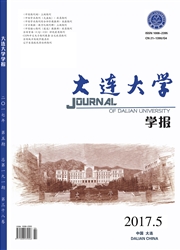

 中文摘要:
中文摘要:
海洋酸化是继"温室效应"之后又一由CO2过量排放而引起的全球性环境问题。一方面,海洋酸化作为一种环境胁迫因子,可以破坏海洋生物体内的酸碱平衡,进而改变海洋生物组织细胞渗透压,导致海洋生物组织细胞损伤甚至死亡;另一方面,海洋酸化引起的海水pH值降低及海水碳酸盐饱和度改变可破坏海洋生态系统中CO2—碳酸盐体系的动态平衡,这将造成那些具有碳酸盐外壳(或骨骼)的海洋生物其碳酸盐外壳(或骨骼)的溶蚀或导致这些海洋生物的幼体无法正常形成所需的碳酸盐外壳(或骨骼),同时,也会不同程度的影响一些海洋生物的生物矿化作用,从而影响具有碳酸盐外壳(或骨骼)以及生物矿化作用的海洋生物的正常生长、发育和繁殖。近岸海域处于大气圈、岩石圈、生物圈的耦合地带,具有生态环境复杂、渔业资源丰富的特点,是人类进行渔业生产和经济海产人工增养殖的重要场所和基地。相对其它海洋区域而言,近岸海域水层较浅,CO2气体在水中的溶解一般处于饱和状态,水体中的CO2分压易随空气中CO2浓度的变化而变化,是最先也是最容易受到海洋酸化影响的海域。本文从海洋酸化对近岸海洋生物的环境胁迫效应以及海洋酸化对近岸海洋生物矿化作用的影响两方面,综述了海洋酸化对近岸海洋生物产生的影响。
 英文摘要:
英文摘要:
Ocean acidification after 'Warm House' is another global environmental problem caused by increasing emissions of anthropogenic carbon dioxide (CO2). Ongoing ocean acidification increasingly affects marine ecosystems and commercial fisheries by changing seawater pH and CaCO3 saturation. On one hand, ocean acidification as an environmental stressor could destroy internal acid-base homeostasis of marine life. On the other hand, the decrease of seawater pH and CaCO3 saturation caused by ocean acidification would affect the formation of carbonate shell and the process of biomineralization of marine life because of the change of dynamic balance of ocean CO2-carbonate system. Nearshore zone is the juncture belt of atmosphere, lithosphere and biosphere characterized by complex environment and abundant fishery resources; it is also an important place for artificial breeding of commercial marine species. In this paper, we reviewed the impacts of ocean acidification on nearshore fisheries mainly from the studies on both ocean acidification as an environmental stressor and its effects on marine life biomineralization.
 同期刊论文项目
同期刊论文项目
 同项目期刊论文
同项目期刊论文
 期刊信息
期刊信息
